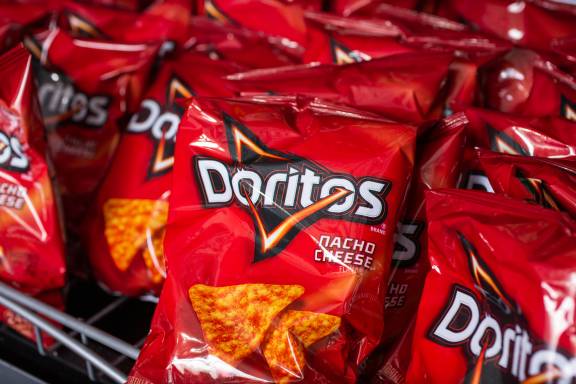Warning—for anyone with a sensitive stomach, this article deals with a topic that could cause an upset stomach!
Connect with a verified veterinarian in minutes. Licensed vets are available 24/7 to answer your questions. No need to worry about your furry family member.
Have you ever gone for a walk in the woods, enjoying the fresh air and scenery, only to look down and see your dog eating poop? It happens! This is a normal behavior for dogs. It’s gross to us and it’s difficult to fathom what draws a dog to eat poop. However, one that really gets people upset is when their fur baby eats human poop.
Is Human Poop Dangerous?
Yes, human feces are dangerous to dogs. Not only do human feces carry harmful bacteria, but they can also be contaminated with drugs people have taken (including illegal drugs). Not only that. The food the person ate could also make a dog sick, if the dog eats enough of the poop.
While human feces can make a dog sick, in the majority of cases, dogs that eat human feces will be OK. It’s only a few dogs that will become sick.
Symptoms of a Dog That’s Eaten Human Feces
You may notice these symptoms if your dog has eaten human feces:
- Stomach pain
- Vomiting
- Diarrhea
- Lack of appetite
- Lethargy
It can take several hours before symptoms show after your dog snarfs up poop. Monitor your dog for any symptoms after he’s eaten human poop. If you believe your fur baby has become sick from eating human feces, then it’s a good idea to call the vet. They will have the best advice on next steps for you to follow.
Any time you’re worried, even if your dog seems fine after eating poo, call the vet with your concerns.

Review symptoms, medications & behavior to keep your pets healthy with a Vet Online in just minutes.
Ask a Vet Live NowTreatment for Dogs After Eating Human Feces
At the vet’s, they will do a physical exam of your dog, and will run lab work, too. Tests may include both blood work and fecal samples. Treatment will depend on the results of the tests.
If your fur baby has recently eaten poop, the vet may induce vomiting to get the material out of your dog’s digestive system.
If there’s an infection, the vet will treat your dog with antibiotics and may treat your dog with activated charcoal, or even an IV fluid to help flush the toxins from your dog’s system.
For a dog that’s eaten human feces contaminated with drugs, the treatment may be a little different. The vet may give your dog intravenous (IV) fluids that make your fur baby urinate. The fluids help your dog to excrete the drugs from his system and rehydrate him if he’s dehydrated from vomiting excessively. The vet may also treat your fur baby with digestive enzymes directly into his stomach. These help break down any remaining feces and get them out of the body. The vet may also give your dog activated charcoal to keep his system from absorbing more of the toxin (drugs).
Recovery in Dogs That Have Eaten Human Feces
Once your fur baby’s condition is stable, you’ll be able to take him home. It’s essential to follow through with your vet’s instructions on further treatment or a specialized diet that may be needed at home. Make sure to give your dog any medication recommended by the vet and follow their instructions carefully. Your dog’s full recovery depends on following the vet’s instructions carefully.
It may take your dog a week or so to recuperate and recover after he eats human feces. During this time, your fur baby may need to reduce his normal activity level and get plenty of rest. Eating human poop can take a lot out of your dog!
In most cases, dogs will fully recover pretty quickly without any harmful effects.
While dogs do eat feces as a normal part of their behavior, it’s best to prevent your dog from doing this. If he seems to eat poop on a regular basis, this is really something you should discuss with the vet. It may be your dog has a dietary deficiency of some kind.
Connect with a verified veterinarian in minutes. Licensed vets are available 24/7 to answer your questions. No need to worry about your furry family member.

Julie
Julie is a graduate of the University of North Carolina, Wilmington, where she studied Animal science. Though contrary to the opinion of her parents she was meant to study pharmacy, but she was in love with animals especially cats. Julie currently works in an animal research institute (NGO) in California and loves spending quality time with her little cat. She has the passion for making research about animals, how they survive, their way of life among others and publishes it. Julie is also happily married with two kids.
Review symptoms, medications & behavior to keep your pets healthy with a Vet Online in just minutes.
Ask a Vet Live Now




